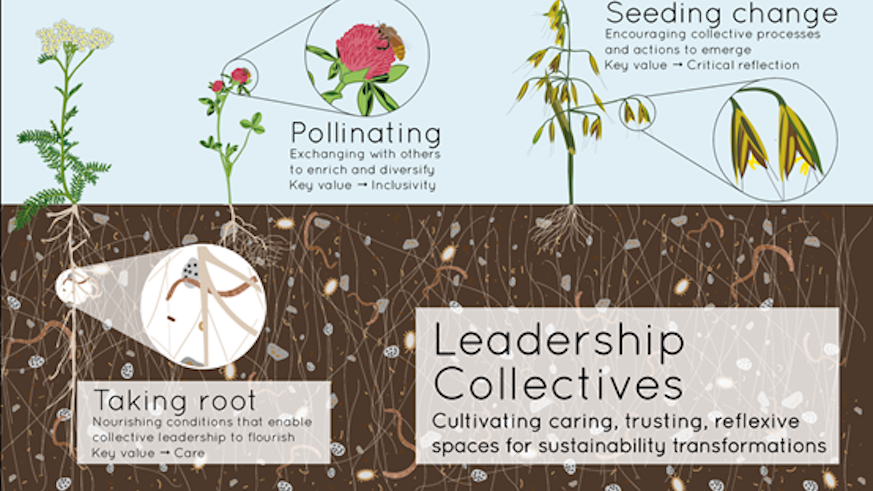Leadership collectives to enable sustainability transformations
11 March 2021

New generation of sustainability leaders advocate for the creation of leadership collectives as a solution to sustainability transformations.
In a paper published in Sustainability Science this week “Creating leadership collectives for sustainability transformations”, an international and interdisciplinary group of postdoctoral researchers advocate for leadership collectives to achieve the structural changes needed for more effective leadership for sustainability transformations.
From their experience with a living experiment for collective leadership, the Careoperative, the group argue leadership collectives can support shifts in academia from metrics to merits, from a focus on career to care, and from disciplinarily-bounded to inter- and trans-disciplinary research.
Leadership collectives are groups of individuals from multiple organisations and sectors who lead transformational social change together through critical reflection, inclusivity and care.
The paper is written under a shared first-author pseudonym Dr. O. Care, which reflects the group’s commitment to acknowledging the collective effort of learning, reflecting and writing that have resulted in the paper, whilst challenging lead author status as an indication of status.
The group call for academic organisations to reorient their training programs, work ethics and reward systems to encourage collective excellence and to allow space for future leaders to develop and enact a radically reimagined vision of how to lead as a collective with care for people and the planet.
Drawing upon their experience of working together as the Careoperative, the paper highlights three ways leadership collectives can be fostered.
1.Taking root – cultivating nourishing conditions based upon egalitarian ways of working, shared responsibility and an ethics of care.
2. Pollinating – creating inclusive and trusting spaces for the open pollination of ideas, tools and experiences.
3. Seeding change – engaging with active, critical and collaborative reflection that encourages new ideas and approaches to emerge.
The full publication can be found here